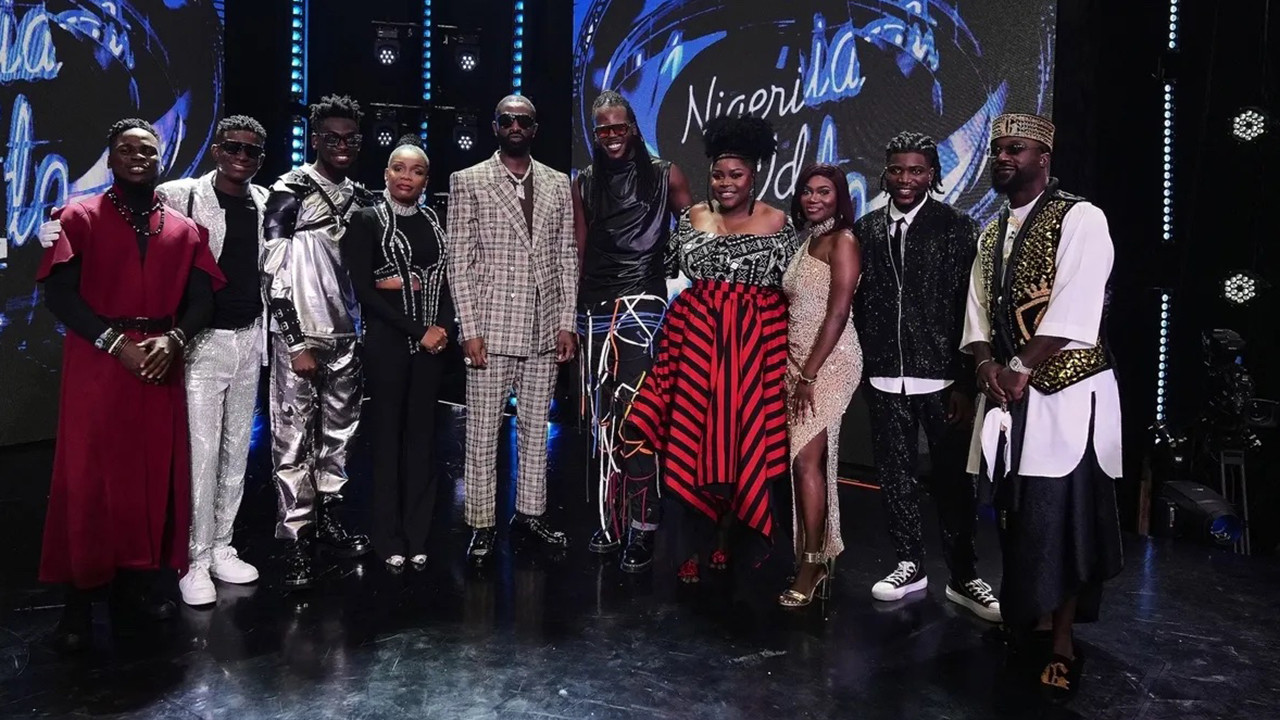 ACTIVITIES at this year’s i-Represent International Documentary Film Festival continue today at the Freedom Park, old Broad Street Prison, Lagos Island, with conversations on digital broadcasting and film screening. The festival started on Thursday, March 19, and ends tomorrow.
ACTIVITIES at this year’s i-Represent International Documentary Film Festival continue today at the Freedom Park, old Broad Street Prison, Lagos Island, with conversations on digital broadcasting and film screening. The festival started on Thursday, March 19, and ends tomorrow.
The festival is conceived and organised by the iRepresent Documentary Film Forum, an affiliate of the West African Documentary Film Forum (WDFF), and the Documentary Network Africa (DNA).
About 12 international guests from countries such as Germany, United States, United Kingdom, France, Cameroun, Gabon, South Africa and Kenya are participating in the festival. Today’s conversation is themed Documentary Filmmaking & Conflict Resolution. It will be addressed by Mr. Alan Channer from the United Kingdom, whose multiple award-winning film, The Imam & the Pastor, focuses on a conflict resolution initiative that has helped to facilitate peaceful coexistence in crisis-torn Jos Plateau State
Also billed for today is a conversation on Women in Film: Pushing the Boundaries in the Digital Era. It will be moderated by iREP Festival manager, and producer/director of Unbroken, Mrs Toyin Poju-Oyemade. Notable filmmakers including, Mildred Okwo, Tope Oshin-Ogun, Grace Edwin-Okon, Emem Isong and the veteran actress Joke Silva are on the panel.
Tomorrow, there will be an Art Stampede, an ‘arthouse parliamentary’ session, which usually features a discourse around a national concern about freedom of creative expressions. It is themed, Digital Broadcasting & Challenges of Artistic Freedom.
It is collaboration between iREP Film Forum and the leading culture activist organisation, the Committee for Relevant Art. It will have a keynote by Prof Awam Amkpa of New york university, USA, and panelists are, Victor Okhai, a film activist and administrator; Ropo Ewenla, culture activist and secretary of the Poets, Essayists and Novelists, PEN – the global campaign group for freedom of artistic expression and Prof. Niyi Coker (Jnr) of the University of Missouri, USA. Deji Toye, the lawyer-dramatist-poet, will moderate it.
Essentially, the roundtable is to firm up contacts, networks, and camaraderie among cineastes across the boards for purposes of sharing experiences, peer reviewing and collaborations on projects among others.
It is one of the distinguishing characters of iREP. Conceived on the template of its self-defined vision of Africa in Self-Conversation, the panel discussions are designed to examine the possible short/long-term influence or effect of the chosen theme on the fortune of the continent in any give year. For this edition the panel discussions will project into the likely effect of digital broadcasting on the socio-cultural, political and economic life of the continent.
Though conceived on the traditional iREP thematic framework of Africa in Self-Conversation, the theme is premised on the reality that Digital media technology is expanding narrative possibilities and shaping audiences’ experiences of how realities are articulated.
In the words of the Festival Executive Director, Femi Odugbemi, “Documentary filmmaking is coming to terms with these new realities and continuously finding hybrid strategies to navigate the blurred lines crisscrossing verite and satisfying the ever changing temperament of the digital world that is hip, fun-seeking, chaotic, multi-tasking, and attention sapping.”
Odugbemi adds: “For documentary filmmaking, digital technology presents a challenge and an opportunity that would either remarkably transform and redefine what passes as a documentary film or bury the art in its past. More than ever before, there is a need to reinvent the art of documentary filmmaking within the space of the new elements that are dictating the trend of media consumption and experience globally. We are also conscious of the inevitable movement of Television broadcasting and services into full digital era as envisaged by the Nigeria Broadcasting Commission and that that quite a lot of African nations have set same 2015 as deadline for their full embrace of digital broadcasting on the continent.”
During the course of the four-day festival, there will be four separate training programmes and workshops to take young filmmakers through the rudiments of production and acquisition of technical expertise. There are also workshop sessions for already practising filmmakers on how to hone their skills, and especially on distribution opportunities in the context of digital broadcasting era. Experts drawn from United Kingdom, Germany and the USA conduct the trainings and workshops.
Participants in the workshops were pre-selected from a registration programme earlier.
Equally, there has been producers’ roundtable. This is a network of film producers, producers, technicians and other such professionals, which convenes every year to examine the prospects of co-operations and collaborations between/and among professionals across countries and continents.
About 50 films have been carefully selected and lined up for screening. The films were curated by the iREP directorate in collaboration with its partners — the US-based African World Documentary Film Festival, AWDFF; the Germany-based Association of Documentary film makers (Ag-Dok): and the British Council, which is supporting the festival for the first time this year.
The screening list including award-winning works such as Chameleon (by Ryan Mullins/Canada); Love is All (by Kim Longinotto/UK); Poverty Inc (by Michael Matheson/US); Unforgiven (by Lucas Augustin/Rwanda-Germany); Katlehong (by Irene Loebell/South Africa); Olu Amoda: A Metallic Journey (by Tam Fiofori and Joel Benson/Nigeria); Skyfall (by Juliet Asante/Ghana); A Leaf in the Wind (by John-Marie Teno/Cameroon-France); Scarred: Anatomy of a Massacre (by Judy Kibinge/Kenya); Comrades in Dream (Uli Gaulke/Germany); Deeper Than Black (Sean Addo/USA); The Supreme Price (Joanna Lipper/USA); Unbroken: The John Sunmonu Story (by Toyin Poju-Oyemade/Nigeria) and When I Was Water (by David Forbes (South Africa) among others.





